Abstract
Rhythmic forces have been applied to the wrist of patients with Parkinsonism tremor by means of a printed motor. The tremor rate was not altered to that of the applied force. On the contrary, beats were established, the rate of which depended on the difference in rate between the tremor and the applied rhythm. Most of the observations have been for horizontal motion of the hand but similar phenomena have been seen for vertical movements, and for other parts of the body--for example, foot, elbow, finger joint, and head. The observations are regarded as supporting the view that the tremorgenic mechanism is central. There was no electromyographic evidence of servo driving or servo assistance in the genesis of the tremor.
Full text
PDF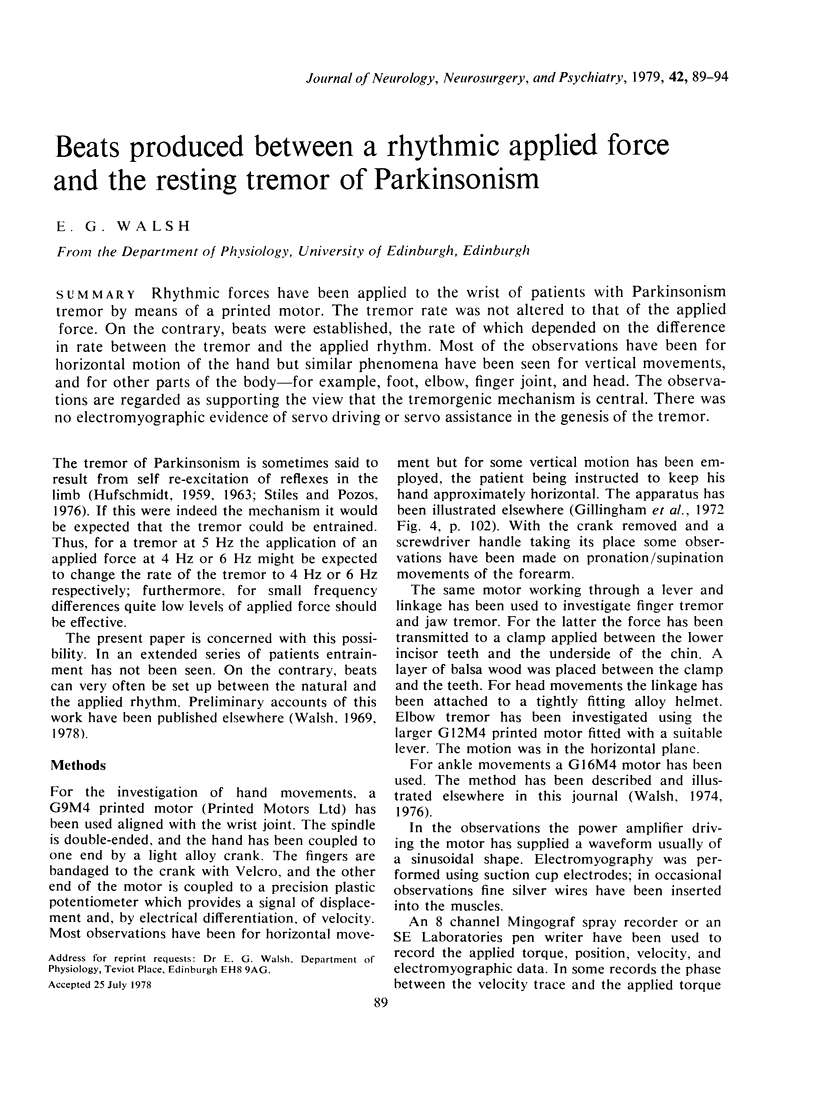
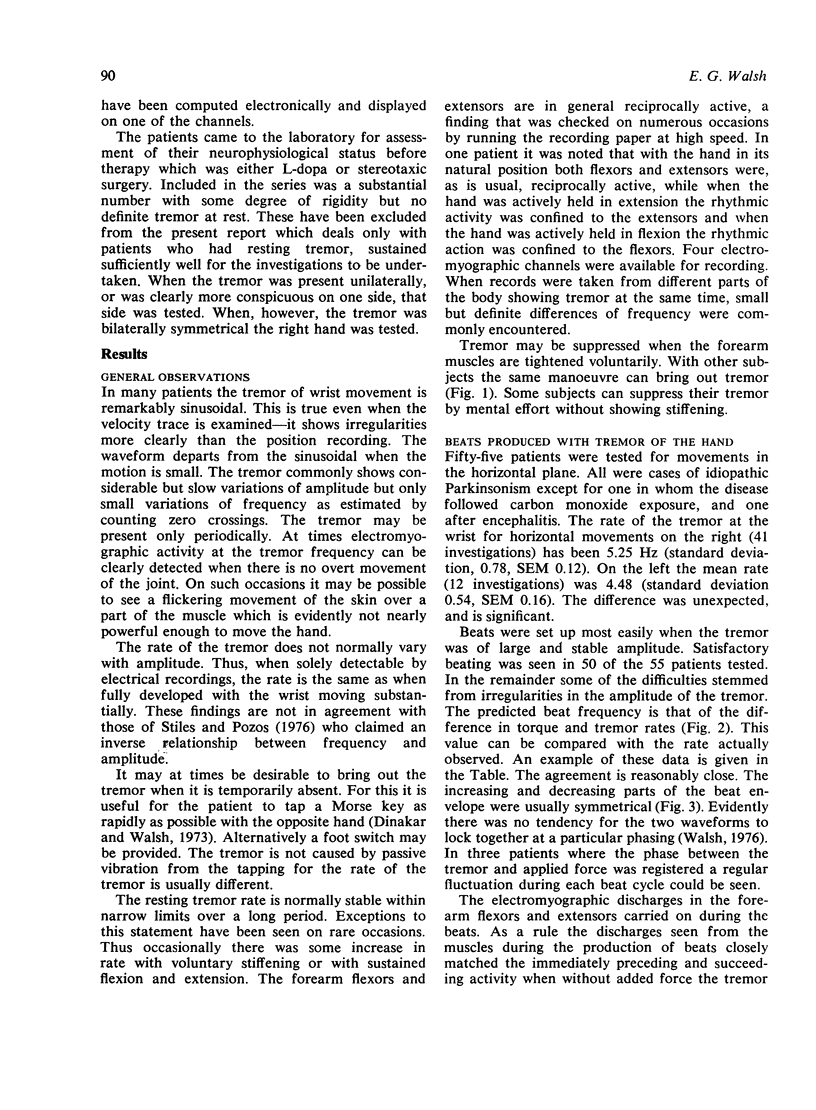
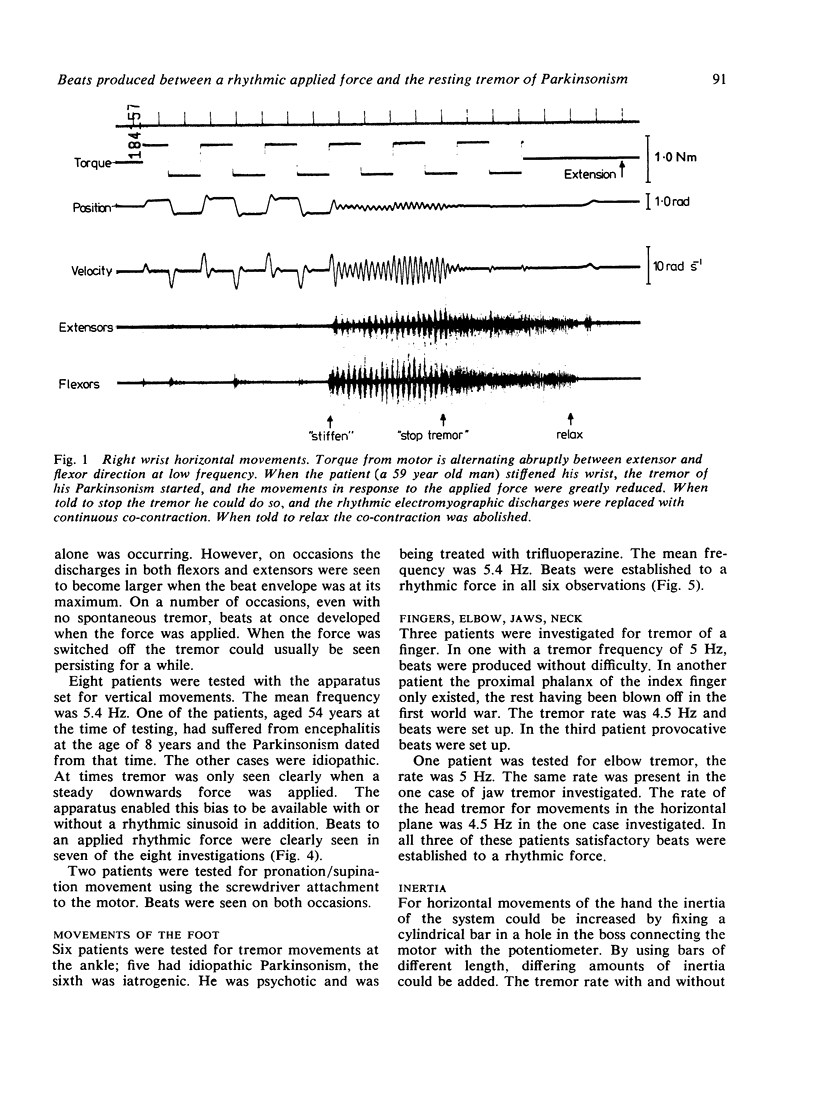
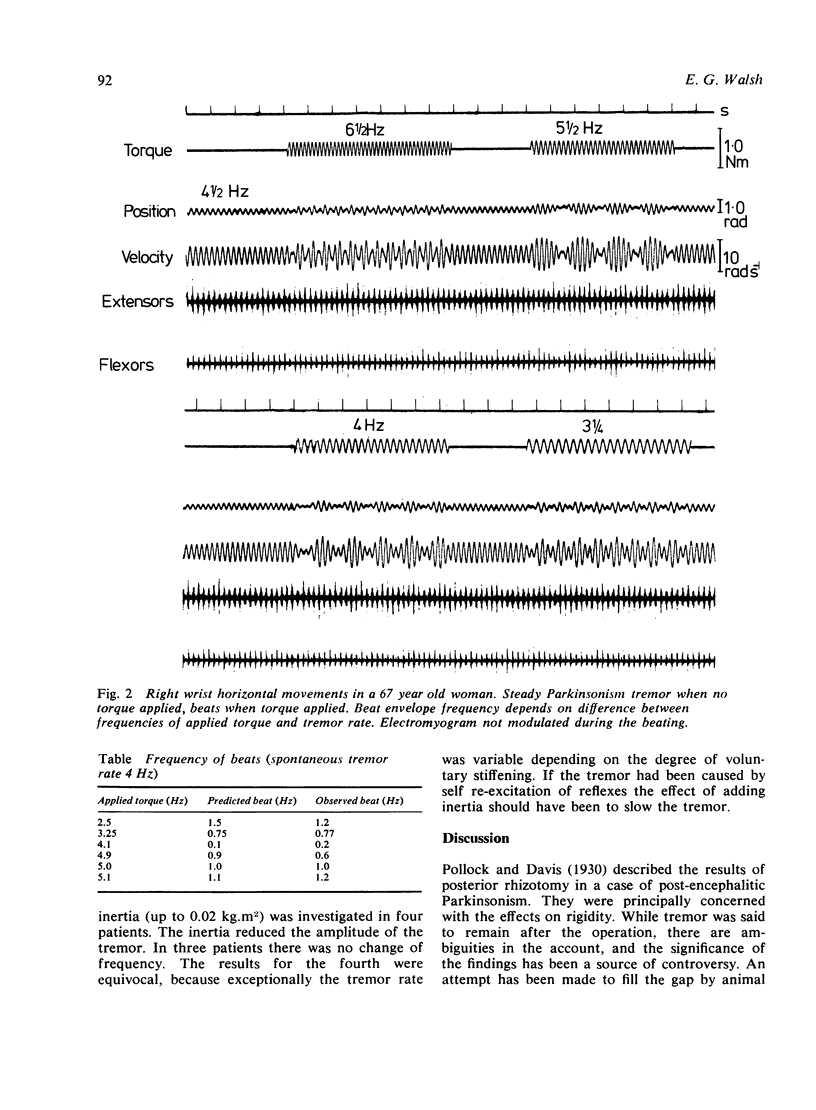
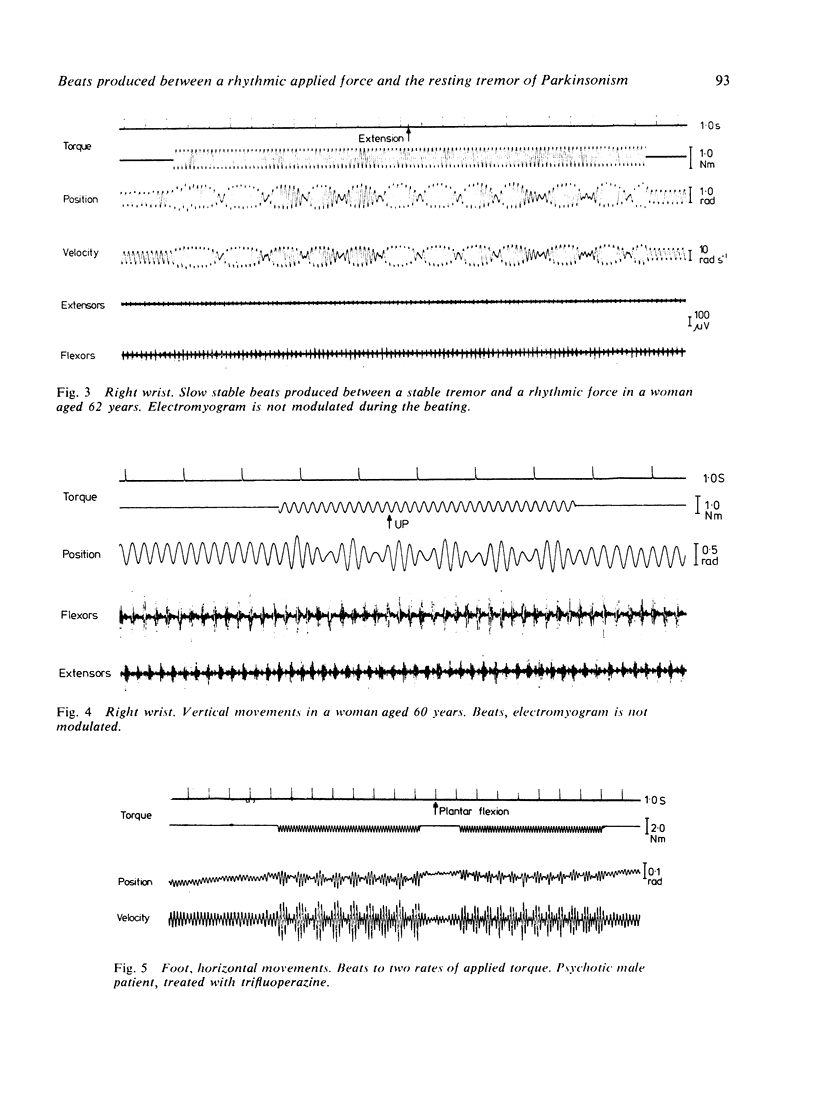
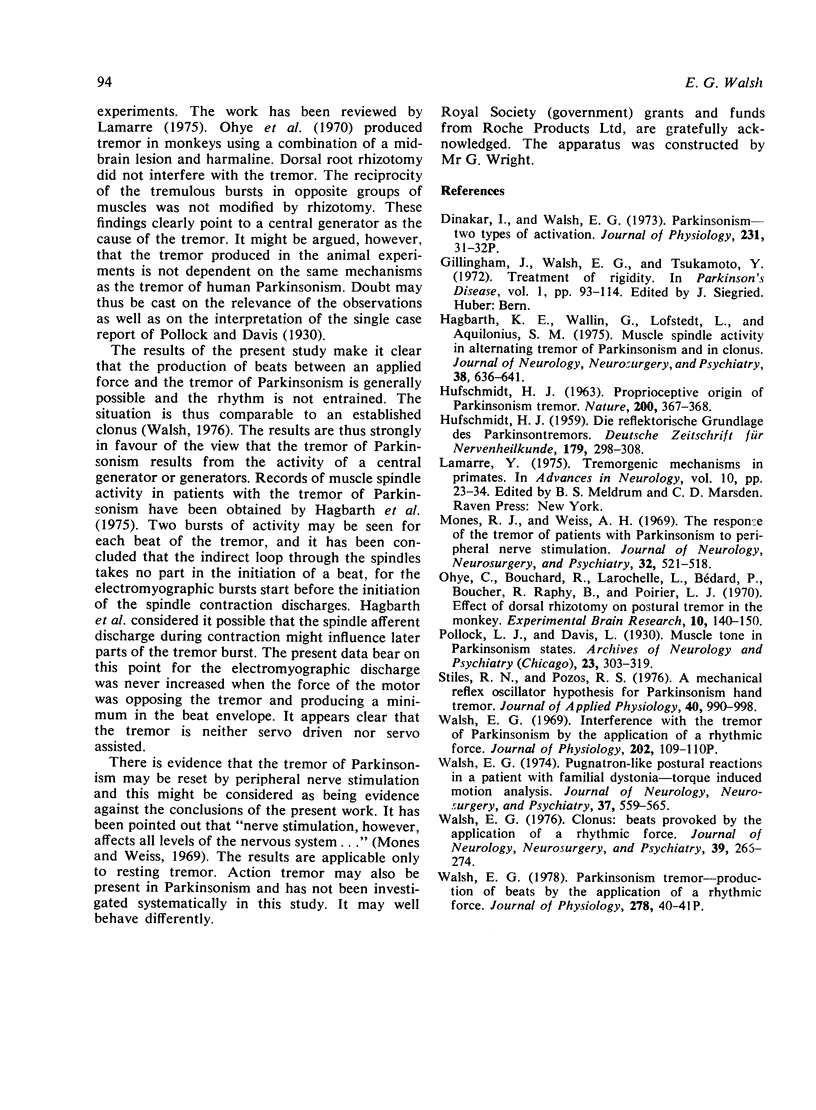
Selected References
These references are in PubMed. This may not be the complete list of references from this article.
- Dinakar I., Walsh E. G. Parkinsonism--two types of activation. J Physiol. 1973 May;231(1):31P–32P. [PubMed] [Google Scholar]
- HUFSCHMIDT H. J. PROPRIOCEPTIVE ORIGIN OF PARKINSONIAN TREMOR. Nature. 1963 Oct 26;200:367–368. doi: 10.1038/200367a0. [DOI] [PubMed] [Google Scholar]
- HUFSCHMIDT H. J. Uber die reflektorische Grundlage des Parkinsontremors. Dtsch Z Nervenheilkd. 1959;179(3):298–308. [PubMed] [Google Scholar]
- Hagbarth K. E., Wallin G., Löfstedt L., Aquilonius S. M. Muscle spindle activity in alternating tremor of Parkinsonism and in clonus. J Neurol Neurosurg Psychiatry. 1975 Jul;38(7):636–641. doi: 10.1136/jnnp.38.7.636. [DOI] [PMC free article] [PubMed] [Google Scholar]
- Lamarre Y. Tremorgenic mechanisms in primates. Adv Neurol. 1975;10:23–34. [PubMed] [Google Scholar]
- Mones R. J., Weiss A. H. The response of the tremor of patients with Parkinsonism to peripheral nerve stimulation. J Neurol Neurosurg Psychiatry. 1969 Dec;32(6):512–518. doi: 10.1136/jnnp.32.6.512. [DOI] [PMC free article] [PubMed] [Google Scholar]
- Ohye C., Bouchard R., Larochelle L., Bédard P., Boucher R., Raphy B., Poirier L. J. Effect of dorsal rhizotomy on postural tremor in the monkey. Exp Brain Res. 1970;10(2):140–150. doi: 10.1007/BF00234727. [DOI] [PubMed] [Google Scholar]
- Stiles R. N., Pozos R. S. A mechanical-reflex oscillator hypothesis for parkinsonian hand tremor. J Appl Physiol. 1976 Jun;40(6):990–998. doi: 10.1152/jappl.1976.40.6.990. [DOI] [PubMed] [Google Scholar]
- Walsh E. G. 'Pugnatron'-like reaction in a patient with familial dystonia: torque induced motion analysis. J Neurol Neurosurg Psychiatry. 1974 May;37(5):559–565. doi: 10.1136/jnnp.37.5.559. [DOI] [PMC free article] [PubMed] [Google Scholar]
- Walsh E. G. Clonus: beats provoked by the application of a rhythmic force. J Neurol Neurosurg Psychiatry. 1976 Mar;39(3):266–274. doi: 10.1136/jnnp.39.3.266. [DOI] [PMC free article] [PubMed] [Google Scholar]



